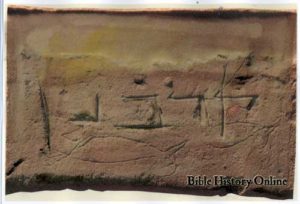What does the phrase “whatever help you might otherwise receive from me is a gift devoted to God” mean in Matthew 15:6
Question:
I wanted to ask you about Matthew 15:3-6. What does Jesus mean when he told the Pharasees in verse 5 that “whatever help you might otherwise receive from me is a gift devoted to God”?
Answer:
This is a reference to a common Jewish practice of giving a sacrifice (actually, more accurately a gift) to the temple. In some cases, this gift could be given in replacement for something owed to another. The parallel passage in Mark 7:11-12 can be helpful. There was a special Jewish (or more accurately Aramaic) word used for this kind of gift/sacrifice. They called this gift to the temple-in-lieu-of another obligation Corban or Korban. Mark has this: “Whatever help you might otherwise have received from me is Corban (that is, a gift devoted to God).” In other words, this corban could be given to the temple, and, according to the tradition of the priests, could be used to replace an obligation to one’s own parents. Ouch. In doing this, the Pharisees were co-consipirators in helping the Jewish children dishonor their parents.
Jesus was very strongly opposed to this hypocritical policy of the priests. What appeared to some to be a very religious act was in fact a selfish and greedy way for the priests to manipulate people into giving them more money. There was a clear conflict of interest here. Paying Corban would allow ungrateful and disrespectful children to kill two birds with one stone. They could gain favor with God (or so they thought) while at the same time getting out of a debt that they owed to their own parents. No wonder Jesus was so upset about the corban tradition, and no wonder that corrupt priests invented this bogus tradition.
The point for us is this. We need to be careful to not accept human-invented tradition to be thought of as biblical or as required of all believers (Matthew 7:8). Perhaps even worse is to teach traditions of men which, if followed, would actually cause the believer to disobey God (Matthew 7:9-13). The corban tradition–giving what one owed to one’s parents instead of God, is in the second category. Jesus comes down quite strongly on these traditions which nullify the Word of God.
By the way, as a side note, there is archaeological evidence which confirms the use of the word corban by Jews at the time of Jesus. A vessel was found with an inscription with the letters krbn on it. The vessel was found in a context consistent with the assumption that it was used as a gift or offering in Jerusalem. Right next to the inscription is a drawing of two doves or pigeons. This is a good example of how archaeology can show the reliability of the New Testament and bring alive the meaning of the New Testament text.
John Oakes













































